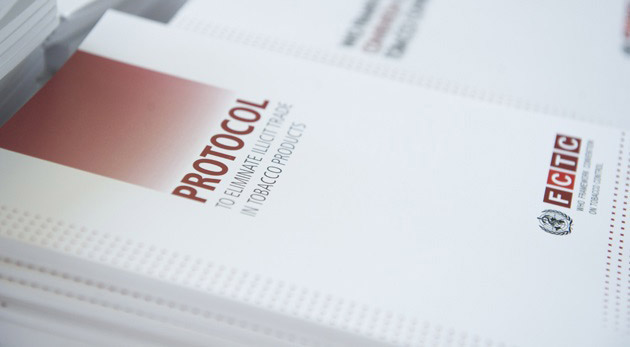
Context
Qatar took the lead among the countries of the Gulf Cooperation Council and the WHO Eastern Mediterranean Region by ratifying the WHO Framework Convention on Tobacco Control (FCTC) on 23 July 2004. Two years prior, Qatar introduced its first comprehensive tobacco control law, Law No. 20 of 2002. This law served as a robust foundation for tobacco control initiatives in the country, as it incorporated all necessary measures within a single legislation. Qatar demonstrated its commitment to tobacco control early on by implementing Article 2 of Law No. 20 of 2002, which prohibited tobacco cultivation, manufacturing and the mixing of tobacco products with other ingredients. This prohibition played a vital role in diminishing the influence of the tobacco industry and growers, while enhancing the effectiveness of tobacco use prevention programmes in attaining their objectives. In June 2013, Qatar further showcased its dedication to tobacco control by signing the Protocol to Eliminate Illicit Trade in Tobacco Products, ranking as the 18th country globally to do so.
Initiative
Qatar has implemented several measures that have enabled the country to participate in the Protocol to Eliminate Illicit Trade in Tobacco Products. These initiatives include:
Embracing and adhering to the international Protocol to Eliminate Illicit Trade in Tobacco Products, as recommended by the WHO FCTC. The Protocol offers valuable guidance on the necessary measures for effectively establishing a comprehensive system to eliminate illicit tobacco trade.
Enacting the new tobacco control law, Law No. 10 of 2016, which effectively regulates and monitors the tobacco industry's supply chain, with the aim of preventing and eliminating all forms of illicit trade and tobacco imports. This effort involved close collaboration with relevant government entities, including customs, the taxation chamber, the police and the judiciary.
Implementing specifications that define the composition and emissions of tobacco products, ensuring compliance and reducing the occurrence of illicit trade.
Establishing a law enforcement unit within the Ministry of Public Health's tobacco control programme, responsible for ensuring the proper enforcement and execution of the provisions outlined in Law No. 10 of 2016.
Appointing inspectors to verify that imported tobacco products conform to the stipulated standard specifications outlined in Law No. 10 of 2016.
Challenges and lessons learnt
The emergence of new trading methods, such as the utilization of the internet and various websites, including social media, for the sale of tobacco products, presents a significant challenge in controlling illicit tobacco trade. Additionally, the absence of policies and regulations regarding the proper disposal of tobacco products raises concerns about potential negative impacts on the environment and public health. Another issue is the lack of a tracking and tracing mechanism to monitor the supply chain of tobacco products and facilitate product recalls, if necessary. The primary lesson learnt from this initiative is the critical importance of implementing interventions for quality control and assurance, as they play a crucial role in reducing illicit tobacco trade. Furthermore, the application of market surveillance is essential to ensure that all tobacco products adhere to the prescribed standards and regulations.
Impact
Ratifying the Protocol to Eliminate Illicit Trade in Tobacco Products has had a positive impact by ensuring the necessary quality assurance for tobacco products to meet the prescribed standards and regulations.
Next steps
Qatar's future plans involve enhancing coordination among countries of the Gulf Cooperation Council to collectively combat the illicit trade in tobacco products. To address the challenges faced within the country, Qatar intends to reinforce control over illicit trade by implementing the Protocol through the following measures:
Developing and executing effective initiatives to regulate and oversee the supply chain of tobacco products imported into Qatar, aiming to prevent, discourage, identify, investigate and prosecute illicit trade activities.
Strengthening the capabilities of national authorities, including customs, police and judiciary agencies, responsible for preventing, deterring, detecting, investigating, prosecuting and eliminating all forms of illicit trade in tobacco products.
Promoting cooperation and information exchange with countries of the Gulf Cooperation Council and international organizations to facilitate collaboration in addressing illicit trade in tobacco.
Establishing a robust quality assurance and control system to ensure compliance with national specifications of tobacco products.
References
MPOWER measures to reduce demand for tobacco
Protocol to Eliminate Illicit Trade in Tobacco Products
WHO Framework Convention on Tobacco Control
Story originated in 2019.




